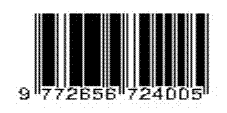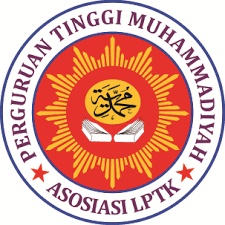Development of LKPD Based on Higher Order Thinking Skills using Canva in Combination Material
Abstract
In the present era of digital technology, students are expected to possess metacognitive abilities that are closely associated with Higher Order Thinking Skills (HOTS). The significance of creating Learning and Teaching Materials (LKPD) based on HOTS to enhance the metacognitive capacities of high school students. This study is a qualitative descriptive research aimed at describing the process of generating LKPD based on HOTS using combination materials. The LKPD was created using Canva. The stages employed are the preliminary and prototyping stages. The data was gathered through the conduct of tests and conducting interviews. The participants in this study consisted of students from SMA Negeri 1 Indralaya Utara who possessed high, moderate, and low levels of mathematical proficiency. The HOTS-based LKPD, created using Canva, undergoes expert evaluation for validation in terms of content, construct, and language. The outcomes of the review are used to modify the LKPD until it is officially validated by the expert. Subsequently, the efficacy of the legitimate LKPD was assessed on the research participants. The trial results are given in a qualitative manner to assess the feasibility of using HOTS-based LKPD. This study generates Higher Order Thinking Skills (HOTS)-based Learning and Teaching Materials (LKPD) that are both valid and practical.
References
Dwinata, A. (2019). Analisis Kemampuan Pemecahan Masalah Menggunakan Pemodelan RASCH pada Materi Permutasi dan Kombinasi. Prosiding Seminar Nasional Matematika, 2, 124–131. https://journal.unnes.ac.id/sju/index.php/prisma/
Effendi, R., Herpratiwi, H., & Sutiarso, S. (2021). Pengembangan LKPD Matematika Berbasis Problem Based Learning di Sekolah Dasar. Jurnal Basicedu, 5(2), 920–929. https://doi.org/10.31004/basicedu.v5i2.846
Fitri, A., & Abadi, A. M. (2021). Kesulitan Siswa SMA dalam Menyelesaikan Soal Matematika pada Materi Peluang. Jurnal Riset Pendidikan Matematika, 8(1), 96–105. https://doi.org/10.21831/jrpm.v8i1.17004
Hafidz, M., & Masriyah, M. (2020). Pengembangan Media Pembelajaran Berbasis Android untuk Pembelajaran Permutasi dan Kombinasi. Kreano, Jurnal Matematika Kreatif-Inovatif, 11(2), 126–135. https://doi.org/10.15294/kreano.v11i2.24198
Hapsari, G. P. P., & Zulherman, Z. (2021). Pengembangan Media Video Animasi Berbasis Aplikasi Canva untuk Meningkatkan Motivasi dan Prestasi Belajar Siswa. Jurnal Basicedu, 5(4), 2384–2394. https://doi.org/10.31004/basicedu.v5i4.1237
Kemdikbud. (2022). Kurikulum Merdeka. Kementrian Pendidikan, Kebudayaan, Riset Dan Teknologi. https://kurikulum.kemdikbud.go.id/kurikulum-merdeka/
Latifa, A. N., Setyansah, R. K., Ningsih, M. K., & Malawi, I. (2022). Pengembangan Media Manipulatif Puzzle Game pada Materi Kombinasi Permutasi. Jurnal Pembelajaran Matematika Inovatif, 5(5), 1457–1466. https://doi.org/10.22460/jpmi.v5i5.1457-1466
Mahyudi. (2016). Mengapa Sulit Membedakan Permutasi dan Kombinasi. AdMathEdu, 6(1), 33.
Marlina, M. (2022). Pengembangan LKPD Online Berbantuan Live Worksheet pada Materi Permutasi Kombinasi. Journal of Education and Instruction (JOEAI), 5(1), 247–258. https://doi.org/10.31539/joeai.v5i1.3636
Rochim, A. (2022). Analisis Kesalahan Siswa dalam Menyelesaikan Soal Permutasi dan Kombinasi Berdasarkan Kemampuan Matematika di SMKN 1 Purwoasri. Educator: Jurnal Inovasi Tenaga Pendidik Dan Kependidikan, 2(3), 265–276.
Said, F. F., Susanto, A., & Utami, N. P. (2023). Pengembangan Lembar Kerja Peserta Didik (LKPD) Berbantuan Canva yang Efektif. Jurnal Ilmiah Soulmath?: Jurnal Edukasi Pendidikan Matematika, 11(1), 85–98. https://doi.org/10.25139/smj.v11i1.6020
Setiabudi, A., Susanta, A., & Maulidiya, D. (2019). Efektifitas LKPD dengan Pendekatan Saintifik untuk Meningkatkan Pemahaman Konsep Matematika Siswa Kelas VIII SMP Negeri 3 Kota Bengkulu. Jurnal Penelitian Pembelajaran Matematika Sekolah (JP2MS), 3(2), 228–241. https://doi.org/https://core.ac.uk/download/pdf/304205588.pdf
Sugiyono. (2022). Metode Penelitian Kualitatif (10th ed.). Alfabeta.
Tanudjaya, C. P., & Doorman, M. (2020). Examining higher order thinking in Indonesian lower secondary mathematics classrooms. Journal on Mathematics Education, 11(2), 277–300. https://doi.org/10.22342/jme.11.2.11000.277-300
Tessmer, M. (1993). Planning and Conducting Formative Evaluation: Improving The Quality of Education and Training. Kogan Page.
Wafiyah, N. (2012). Identifikasi Miskonsepsi Siswa dan Faktor-Faktor Penyebab pada Materi Permutasi dan Kombinasi di SMA Negeri 1 Manyar. Gamatika, 2(2), 128–138. https://doi.org/http://journal.unipdu.ac.id/index.php/gamatika/article/view/280
Wirawan, D. O., Ermiana, I., & Fauzi, A. (2023). E-LKPD Berbasis HOTS Materi Pecahan Berbantu Liveworksheets Berorientasi Pada Pemahaman Konsep Matematika Siswa Kelas V. Jurnal Educatio FKIP UNMA, 9(4), 2011–2021. https://doi.org/10.31949/educatio.v9i4.5998
Wulandari, D., & Pujiastuti, H. (2020). Analisis Pemahaman Matematis pada Materi Permutasi dan Kombinasi. Didaktis: Jurnal Pendidikan Dan Ilmu Pengetahuan, 20(3), 200–209. https://doi.org/https://doi.org/10.30651/didaktis.v20i3.4794
Wulansari, R. D., & Nuryadi. (2022). Efektivitas Penggunaan E-LKPD Berbasis Problem Based Learning Untuk Meningkatkan Kemampuan Pemahaman Konsep Peserta Didik. Jurnal Pendidikan Dan Konseling, 4(4), 338–344. https://doi.org/https://doi.org/10.31004/jpdk.v4i4.5391
Zulkardi. (2002). Developing A Learning Enviroment on Realistics Mathematics Education for Indonesian Students Theacers. University of Twente.

























